That Was A Surprise
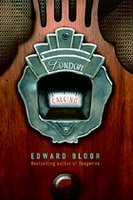
Last night I started one of those flip-between-different-world books, read about sixty pages, and gave up. I picked up London Calling by Edward Bloor. I've had London Calling for more than six months but have put off reading it because I disliked Bloor's last book, Story Time so much. So very, very much. It's an anti-standardized testing rant with cardboard characters doing ridiculous things in the name of satire.
It's hard to believe London Calling was written by the same person.
London Calling is a time travel story about a seventh-grade boy with a troubled life in the twenty-first century who is "called" to London in 1940 to assist a young boy living through the Blitz. Why would he be called back there? Both boys listen to the same radio, a radio that belonged to the main character, Martin's, grandfather who worked at the U.S. embassy in London along with a war hero connected with Martin's school. It's not coincidence--it's what links young Martin to the older period.
A lot of what I liked about this book is what it had to say about history, period, not just the period addressed in the story. History is not just the story of great men in London Calling. The place of the poor and powerless in human events is a big issue here. In addition, the whole question of who gets to decide what is history is brought up.
As it turns out, those are both aspects of the study of history that interest me.
There are portions of the story that seem a little too instructive. When Martin is in the past, I did feel that we were getting a bit of a history lesson in the manner of The 1940s House. And the working class characters who voice their frustration with what is going on around them aren't too subtly handled. The Sacrifice of Isaac story that keeps recurring isn't terribly subtle, either, and in the end I don't think it particularly works. Again, as it turns out, this is a story that interests me because it is so incredibly awful and unexplainable, so I didn't mind it.
The connection between depression and alcoholism and the genetic factor involved in both was handled in a more subtle manner. Personally, I thought the religious aspects of the book weren't overdone, either.
There's a lot going on in this book--history as a field of study, a couple of mysteries, a contemporary school problem, family dynamics, alcoholism, and personal spirituality. I think some readers are going to find that some aspects are drawn together better than others. On the other hand, with so much there a lot of readers should find something to interest them.
48 Hour Book Challenge:
Charlie Bone and the Hidden King, 441 pages
Sylvester or The Wicked Uncle, 410 pages
London Calling, 289 pages
Labels: 48 Hour Book Challenge
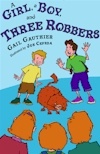
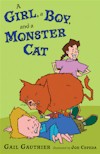
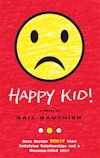
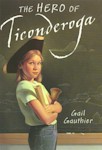




0 Comments:
Post a Comment
<< Home